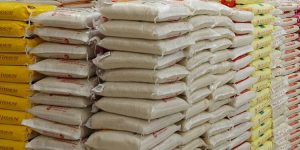Force-feeding babies child abuse, unacceptable — Experts

Citing proven health risks, senior health professionals in the field of paediatrics and nutrition have warned parents and caregivers to desist from the act of force-feeding babies, describing it as child abuse and totally unacceptable.
The practice is still prevalent in Nigeria and has to be stopped, the experts warned
They noted that force-feeding babies could choke them to death and also put them at risk of asthma.
According to them, choking is common in children below five years and the very elderly (above 65).
Infants, they affirmed, have relatively narrow airways and thus can easily choke on small objects, including small food particles.
A Consultant Paediatric Haematologist and Oncologist at the Lagos University Teaching Hospital, Idi-Araba, Professor Temiye Edamisan, told PUNCH Healthwise in an exclusive interview that the practice is totally wrong and unacceptable.
He identified ignorance as one of the drivers of the practice in the country, adding that impatient parents were guilty of the harmful act.
He said, “I don’t know why you should force-feed a baby. It is dangerous and can lead to death. So, it shouldn’t be done. Children have died from respiratory diseases as a result of force-feeding.
“When you force the food into their throat, they cry, and while struggling to swallow, the food can enter their lungs, and it can lead to death. The practice should be discouraged except if the person wants to kill the child.”
Besides the risk of dying, a nutrition expert, Prof. Ignatius Onimawo, said there is a possibility that a child who is being force-fed can come down with asthma due to the constant irritation of the trachea.
The former President of the Nutrition Society of Nigeria said, “The implications of force-feeding are many. When the mother closes the nose of the child and forces food into the mouth, the child will now be breathing through the mouth. Once that happens, the child will be forced to swallow whatever is being forced in.
“In many cases, particles of these foods will enter the trachea. That is why you see them coughing and vomiting after being force-fed.
“And if that is done for a long period, the trachea gets irritated because food particles have no business getting there in the first place. These are some of the things that could later predispose to asthma.”
Cleveland Clinic, an online health portal, described the trachea as a long, U-shaped tube that connects the larynx (voice box) to the lungs.
It is noted that the trachea is often called the windpipe, and it is a key part of the respiratory system.
“When you breathe in, air travels from your nose or mouth through your larynx. It then passes through your trachea to your bronchi. Your bronchi carry the air to your lungs.”
The portal noted that when foreign materials like food or drinks enter the windpipe (trachea), it is known as aspiration.
It states that when this happens, the body’s fight-or-flight response triggers an outpouring of adrenaline, which boosts the heart rate and blood pressure.
“A gag or cough reflex will start automatically and often fixes the problem,” says a pulmonologist, Dr Bohdan Pichurko.
“This is often brief if we promptly expel the aspirated material,” he says, adding, “However, at the other extreme, it may eventually follow with fever and reduced oxygen level, requiring medical attention for possible pneumonia.”
Onimawo described asthma as a killer disease and urged parents not to turn the period of feeding their children, which should ordinarily be a time of enjoyment, into a period of war.
“Again, when a child is being force-fed, he or she would keep crying. So, you are giving the impression that the period of feeding should be that of war. I have a case of a seven-year-old from Imo State who stopped eating because of force-feeding. Anytime he sees food, he knows that it is a very bad experience. He never saw food as a pleasurable experience and became so
malnourished because of this.
“The mother didn’t know what to do because mealtime had turned to war and fighting time. That is what has been registered in the boy’s psychology. Each time he sees food, he will start to cry.
“Eventually, he started eating after I told the mother to always pet and not shout at him. After petting him for some time, he developed an interest in food again. He started eating and gained weight.”
Onimawo noted that force-feeding also has psychological implications.
“Psychologically, the child does not see food as a period of enjoyment, but as a time of war. These are some of the practices we must discourage”, he noted.
Continuing, the don said, “Naturally, when a child is hungry, he will eat. But mothers are no longer patient when feeding their babies. That is why some of them still use feeding bottles for their babies. Feeding bottles are a potential danger and if not well sterilised, can cause infection,” he said.
Punch













